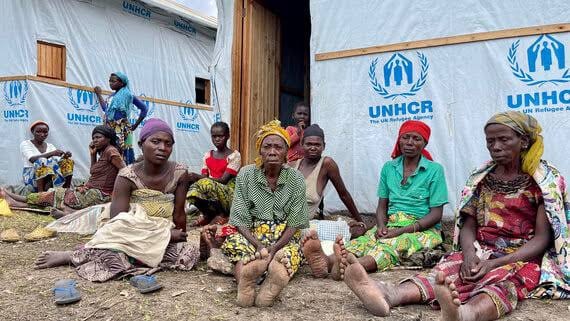Uganda faces food crisis for 1.7m refugees as international aid declines
In Uganda, over 1.7 million refugees, including Congolese mother Agnes Bulaba, are struggling with declining food aid as international support dwindles.

In Uganda, over 1.7 million refugees, including Congolese mother Agnes Bulaba, are struggling with declining food aid as international support dwindles.
For Bulaba, survival often means sending her children to scavenge for food among local communities or, as she shared, turning to work as a prostitute. “As a woman who’s not married, life is hard. Some locals keep throwing stones at us, but we just want to feed our kids and buy them some clothes,” she told The Associated Press.

Despite its reputation as a welcoming host for refugees fleeing conflicts from Congo, Sudan, and South Sudan, Uganda’s humanitarian efforts are stretched thin. Refugee numbers swell by about 10,000 each month, straining resources and heightening tension with local communities.
Funding cuts have forced the U.N.’s World Food Program to reduce rations to as little as $3 per month for most refugees. Food assistance decreases to 60% after three months and to 30% after six, leaving many, like the nearly 100,000 refugees in Bulaba’s Rwamwanja settlement, struggling with hunger.
Filippo Grandi, the U.N. High Commissioner for Refugees, recently visited Uganda, calling for urgent funding. “Services here are overstretched. Natural resources are limited, and financial support is not keeping pace with the needs,” he stated, urging the global community not to take Uganda’s generosity “for granted.”
Ugandan officials, such as refugee minister Hillary Onek, emphasize the need for self-reliance programs in carpentry, bricklaying, and welding to help refugees. “We are trying to be innovative,” he said, acknowledging that funding has “dwindled over the years.”














